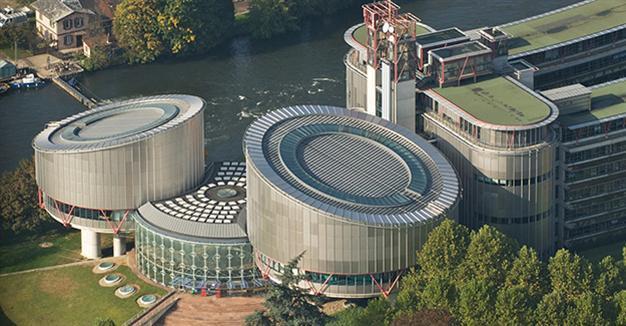Euro court fines Turkey for two failed investigations into suspicious deaths cases
STRASBOURG

The European Court of Human Rights (ECHR) has ruled that Turkey violated the right to effective, independent and prompt investigation into suspicious deaths in two separate cases, issuing a fine of 20,000 euros in each case.
The first case in which Turkey was found guilty of violating Article 2 of the European Convention on Human Rights was the death of a woman as a result of a fire caused by one of her colleagues at her workplace, while the other was the killing of a man during his compulsory military service.
In the first case, Serpil İmren, a secretary for a private company involved in the trade of mineral oil, suffered serious injuries in December 2002 as a result of a fire caused by one of her colleagues at her workplace. She succumbed to her injuries in January 2003.
Her colleague and the owner of the oil company were subsequently indicted and sentenced to 10 months in prison and a fine in April 2005.
The same court issued similar sentences after two additional sets of proceedings in November 2006 and February 2009, which were held due to its judgments being first remitted for reassessment by the public prosecutor’s office attached to the Supreme Court of Appeals and later quashed by the court itself. In December 2010 the Supreme Court of Appeals eventually decided that the criminal proceedings should be discontinued on the ground that the prosecution had become time-barred.
Upon a complaint by İmren’s mother, Sıdıka İmren, the ECHR ruled for a just satisfaction of 20,000 euros for non-pecuniary damage.
The second ruling came in a complaint by the parents of Celal Abbas Üstdağ, who sustained lethal injuries after allegedly being shot by another conscript, M.G., in the barracks where they were stationed during their military service in December 1999. Üstdağ was treated at a military hospital in Ankara until August 2000, and underwent the removal of his large intestine, left kidney, spleen and part of his liver. He died in January 2003 at a hospital in the Central Anatolian province of Sivas.
In a judgment in November 2006, a military tribunal found there was no evidence in the investigation file to support the allegation of an intentional gunshot fired by M.G. and decided that no causal link had been established between the injury sustained by Üstdağ and his death. The military Supreme Court of Appeals upheld the judgment in July 2007.
The ECHR ordered Turkey to pay 20,000 euros for non-pecuniary damage and 2,000 euros for costs and expenses to the Üstdağ family.
In a separate case, the ECHR found Turkey guilty for sentencing a politician who had permitted participants at a congress of his political party to speak in Kurdish.
The applicant, Semir Güzel, was elected by delegates to act as the chairman of the first ordinary congress of the Rights and Freedoms Party (HAK-PAR) on Jan. 4, 2004.
The congress proceeded with speeches being made in the Kurdish language. In February 2005 Güzel, along with 12 other members of HAK-PAR, was indicted for allowing Kurdish to be used during the congress. The prosecutor relied on Section 81 (c) of Law no. 2820, which was said it was an offence for political parties to use a language other than Turkish for their constitutions or programs, at congresses or meetings and when engaging in propaganda activities.
Güzel admitted that he had not intervened when certain delegates at the congress had spoken in Kurdish. However, he maintained that it would not have been legal or ethical for him to stop them.
The ECHR found that that interference had not been “prescribed by law.” In particular, the law under which Güzel had been prosecuted established that political parties could “not remain indifferent” to the use of Kurdish in a political context – but without being precise as to what form of indifference or inaction could be the basis of a criminal prosecution of an individual.
Accordingly, the ECHR held that there had been a violation of Article 10 (freedom of expression), and it held that Turkey was to pay the applicant 7,500 euros in respect of non-pecuniary damage and 2,000 euros in respect of costs and expenses.
 The European Court of Human Rights (ECHR) has ruled that Turkey violated the right to effective, independent and prompt investigation into suspicious deaths in two separate cases, issuing a fine of 20,000 euros in each case.
The European Court of Human Rights (ECHR) has ruled that Turkey violated the right to effective, independent and prompt investigation into suspicious deaths in two separate cases, issuing a fine of 20,000 euros in each case.